Enab Baladi’s investigation team
Nour Dalati – Dia Odeh
The Syrian alternative media experience, which was born in 2011, is about to close another year (the eighth year) while media initiatives, driven by hope and desire for change, face a reality full of questions about their achievements, and significant career benefits at the professional level and at the level of the functional role for which it was founded, and even on an existential level, about the future, opportunities, and means of survival and continuity.
In the summer of 2016, Enab Baladi published a lengthy press kit on concerns that were spread at the atmosphere of the newly born media sector. These concerns began with the rationalization of a number of donors to programs which support the Syrian media, and the emergence of crises and challenges (internal and external) in many institutions, which led to the closure of some of them and the collapse of others. The file was titled “Alternative media at stake … Growing media outlets and absence of supporters.” Its authors met a large number of Syrian journalists, some of whom ended up today as refugees in the European Union countries, and in alternative media, most of which no longer exist in 2019.
This file is only a quick extrapolation of the reality of the local Syrian media, which was referred to as “alternative media”, and a survey of the views of a number of Syrian journalists. They were directly approached with a set of questions about their evaluation of alternative media experience in general, without delving into the analysis of the causes of failure, or delving into opportunities and possible solutions.
It is noted that the journalists, interviewed by Enab Baladi in the context of this file, did not agree on a specific label for this media, and whether it is “alternative,” “new” or “free”, “independent” or “revolutionary”, or it includes all the labels or none of them.
It is also worth noting that, in this file, the concept “intended media” refers the local media institutions that emerged after 2011 as means to support the Syrian revolution.

A forum for Syrian media in Istanbul to discuss the mechanisms of confronting the “yellow journalism” – October 29, 2017 (Enab Baladi)
Self Assessment…
Where did we succeed and where did we fail?
As the eighth anniversary of the March 2011 revolution approaches, and Syria enters a stage full of political and military complexities, and the collapse of entire sectors in the country, foremost of which are security, economy, education and services, the assessment of the local media experience, which emerged as individual and collective initiatives supportive of the process of change in Syria, became an important matter. Assessment aims to identify success and failure, and to look into the future of this sector, which has had the opportunity for the first time, since more than forty years, to restructure itself away from the regime’s authority and its security apparatus control, and fulfill a function that was banned under the one-party system in the country.
In order to do so, Enab Baladi designed a questionnaire for twenty-Syrian journalists working in the Syrian “alternative” media institutions. The questionnaire put forward a set of evaluation questions about the reality of the Syrian media experience, on more than one level.
Alternative Media improved the level of professional journalism
Most of the participants in the questionnaire saw that the “alternative” Syrian media improved the level of professional journalism compared to what it was before 2011.
Journalist Khaled Khalil justified this by saying that “the independent media operates in a wider and freer space, and has come into contact with and benefited from Western experiences. Likewise, it is trying to take advantage of the technological developments that have invaded the media field. That is, it has gone beyond the traditional and rhetorical discourse associated with political power, as in the media managed and monopolized by the regime.”
At the level of individual experience, Alternative Media has also succeeded in raising the qualifications of its journalists, according to 85% of respondents.
The independent journalist, Alaa Awad said that the “Alternative Media is a healthy and educational state for a generation of young people who have never experienced or practiced journalism.” She added: ” Here, I do not particularly mean young journalists or activists who do not have a previous experience in media work, but I mean all journalists, including those who have accumulated years of experience within the regime media, as the latter cannot be classified as media, and journalists who have been working for it have not acquired any knowledge or skills that qualify them to professionally work in this field.”
The journalist in Enab Baladi newspaper, Riham al-Assaad sees that the development of journalists’ expertise in alternative media institutions is different among the media. She said that “some media outlets have added a lot to the expertise of the journalists working for them … and some of them have trained journalists in a context that only serves their policy.”
While most journalists positively view the experience of alternative media in terms of improving the efficiency of individuals and advancing professional work, the reality of media outlets management does not appear to be in a good situation. Participants were divided on the evaluation of the “alternative” media experience at the administrative level.
40% of the respondents found that the experience was “weak”. Journalist Khaled Khalil is among those who believe that this experience “lacks institutionalization, as it was launched as individual and revolutionary projects linked to the popular movement, and despite its development and attempt to keep pace with the event, it did not go outside the framework of the private enterprise owned by the entrepreneur”.
However, 45% of respondents believe that the administrative experience of alternative media outlets is “medium” while only 10% rated it as “good”.
The independent journalist, Anwar Younan, said that “this experience faces many problems, the most important of which is the attempt to reconcile regulated financing of the financier’s service with the major challenges posed by the Syrian reality at home and abroad.”
“Non-stereotypical” content has not changed stereotypes
The “alternative” media contributed to raise the level and quality of the content presented in the Syrian media and succeeded in providing new and “non-stereotypical” coverage, according to 80% of the respondents, citing the amount of freedom available to the press compared to the media whose content is published under the control of the regime, and the state of competition in the emerging field.
According to journalist Yarub al-Dali, this helped “to open the doors of individual creativity, and enrich the scene with new ideas, mostly up to date and borrowed from abroad with amendment, which resulted in modern ideas.”
Journalist Riham al-Assaad, supported al-Dali’s opinion, stressing that alternative media “provided unique content, which was not available at Syrian official media before the revolution.”
Obada Kojan, a Journalist at Syria TV Channel, underscored al-Assaad idea saying that alternative media “has succeeded to break the stereotypes and liberate itself from traditional media, which is faithful to the policy of the regime government or the opposition.”
However, the majority of respondents believed that this type of content has not succeeded in making positive changes in society.
More than half of the participating journalists considered that alternative media did not break stereotypes in society, while 80 percent believe that it did not succeed to address hate speech.
Journalist Yaarb al-Dali believed that hate speech of alternative media is a reflection of reality, “because the scene is basically bloody and alignments are too many (nationalist, sectarian, loyalist and pro-regime).”
Influence is still “weak”
The opinion of the participant reporters were divided as regard to the impact alternative Syrian media had on the conflict. 42 percent of the respondents believed this impact to be negative and 23 percent considered it was positive, while 33 percent stated that it was ineffective.
The data and percentages collected thanks to the survey are similar to the results of an opinion poll conducted by Enab Baladi. The newspaper asked the readers the following question via it Facebook account: “In your opinion, how did the new Syrian media affect the conflict in Syria?”
49 percent of the respondents, which are equal to 182 people, answered “no” and 29 percent voted “yes”, while 21 percent believe it was “not effective”.
Journalist Khalid Khalil agreed with respondents who voted “yes” to the positive effect. He said that “although the independent media was not as influential as it should be, it was able to shed light on the crimes the authorities have committed and were trying to hide.”
The opinion of the participant reporters divided as regard to the impact of alternative media on international public opinion, for 57.1 percent of them stated that it was ineffective while 38 percent disagreed with them.
What is most striking is the participants’ view about the impact of alternative media and how it managed to ease tension among the Syrian people.
In fact, 90.5 percent of the respondents stated that media did not contribute into easing the tension. Khalil explained that “the independent media is taking the side of the so-called opposition, which makes it one way or another affiliated to that side. This media has focused on the victims of the regime and some militias and ignored a huge portion of Syrians considered either loyal or subversive.”
Despite the reality of the alternative media, which does not carry many positive indicators, it did not lack all the factors of success, which means that the possibility of pushing it forward is still attainable.
Most of the journalists who participated in the poll expressed their hope that alternative media would progress and receive support, referring to the accumulation of expertise generated thanks to the last eight years of work and the mistakes that should reorient the course of professional media work.
“Even though limited, the activity of new media, is to be considered as the first case of a Syrian media movement, that may produce more important media output in the future,” said journalist Alaa Awad.
Media within the arena of political and military discord…
Polarization dominates the scene
Owing to the fact that the “alternative” Syrian media institutions have emerged within the context of a political circumstance, and dealt with a political and military scene dominated by discord and division, it was difficult for any media outlet to emerge without being fully unbiased.
In light of the local political polarization that dominates a large part of the Syrian media, studies focusing on media exclude the word “neutral” from its classification, dividing these outlets according to their predilection as “loyalists, oppositionists, and Kurds.”
The situation has gone too far. The interactions of the Syrian regional conflict have affected the state of media neutrality, highlighting trends that tend to take sides with international or regional political parties and adopt their views, thus diverting the media from patriotism and preparing it to serve narrow political goals.
A serious blow to Professionalism
During the past eight years, the Syrian territory has been divided into different forces. Each military force has imposed its intellectual power, which limited the freedom of the media operating in its areas of influence.
In addition, some media outlets had to tackle some topics that would not trigger the discontent of any force, while other media outlets demonstrated sympathy for specific bodies through certain behavior and content that served them.
The Head of the Syrian Journalists Association, Ali Eid, believes that this attraction has an impact on media professionalism, the way the mission is carried out, and the message. “When there is polarization of a policy or a state, the topics media is addressing would serve the interest of these parties, thus, media becomes biased.”
Polarization is “one of the things that left a negative impact on the post-revolutionary media and weakened the ability of the media to do their job appropriately.”
The political polarization of the media extends to reach other aspects, such as the ones that the Syrian journalist and holder of a PhD in Multimedia Science, Riad Masas has tackled during an interview with Enab Baladi. He believes that “the political polarization of media outlets will make it lose its independence and therefore its credibility with the recipient, whether reader or listener.”
Masas went on saying that, “political polarization threatens professionalism too and makes media lose its foundations, which are based on the freedom of opinion and expression and the search for truth and access to the source of news, as well as uncovering the facts. Therefore, polarized media becomes a process. ”
Authority of the sponsor
In addition to the negative effects of political polarization at the professional level and media credibility, the situation generated hostility among some Syrian media institutions, to the extent of defamation and mutual accusations directly or indirectly addressed.
Perhaps the clearest case that emerged after the outbreak of the Gulf conflict and the political alignments of the Syrian media is governed by Gulf financial support.
Dr. Riad Masas believes that depending on funds may impose on the sponsored media outlet a specific political orientation. “There is no single media outlet that can work and survive without funding, as financial resources come usually from advertising, sales and donations. Thus, since the ads and sales cannot cover the expenditures, there must be another source of funding to depend on.”
However, “there are some businessmen who are creating media outlets for political purposes, and they dictate specific editorial guidelines which are suitable to their own political ambitions”, according to Masas.
President of the Syrian Journalists Association, Ali Eid, shared the same perspective as Dr. Masas. He stated: “There is no real media outlet that reflects the situation in Syria, and there is no such thing as neutral media funded by the Syrian taxpayer.”
He added: “Even before the revolution, the regime controlled the media in Syria. The Syrian media has always served the ideology of the party, the leader, the security services and the Intelligence services. As such, the same situation was reduplicated for the opposition today. The media, which is controlled by its sponsors, must reflect the opinions of the funding parties.”
Alternative … Independent … Free … Or new?
Lina al-Chawaf
Lina al-Chawaf, executive director of Rozana Radio, considers that the Syrian media, which emerged outside the regime’s authority after 2011, is likely to have several descriptions, such as independent, alternative, new, or revolutionary.
However, al-Chawaf did not solicit the label “free media,” arguing that “these new forms of media are not completely free, although they started operating after the revolution that called for freedom.”
Al-Chawaf described “alternative media” as the media that came to replace another. This label was launched after 2011 as the post revolution media outlets were designated to replace the regime media.
According to al-Chawaf, the description “independent” stands for “a form of media that unveils the truth without following any agenda, opinion or belief, and conveys all the news that happen on the ground including all parties without prejudice.”
As for the term “revolutionary”, it refers to media outlets which report only the news of the revolution, and discuss the revolution exclusively. Thus, the “new” media is the one which deploys all means of reporting provided by the digital media.
Jawad Sharbaji
Jawad Sharbaji, Enab Baladi’s editor-in-chief, considers that the term free includes “the group of media outlets that emerged during the revolution as a kind of rebellion against the regime and against the official media narrative.”
From Sharbaji’s perspective, the freedom of media is synonymous with the lack of submission to authority.
Sharbaji considers that the label “alternative” has reflected the desire of some Syrians, who launched new media initiatives, (and Sharbaji is one of them), ” to create through these media platforms a substitute for traditional media that used to censor their voices and falsify the reality of what is happening in the country”. However, this label is no longer realistic, as these newly established media institutions could not be a real alternative, especially with the failure of aspired changes in Syria on more than one level.
On the other hand, referring to media as “independent” is a sensitive and controversial issue. Independence in media is a relative professional value that can be influenced by many levels of autonomy, namely editorial, financial, political, and administrative forms of self-rule. He asserted: “In the Syrian context, we use the term independent to describe media outlets that do not belong to the government, political or religious parties, and the armed factions.”
Absi Smeisem
Absi Smeisem, editor-in-chief of Sada al–Sham newspaper, supported the use of the term “independent” to designate alternative Syrian media outlets as the so called alternative media platforms in Syria
appeared “as independent of any authority or political orientation. Thus, part of its independence was mostly due to the fact that these media outlets were funded by civil society organizations, which usually require the element of independence as a main condition for financing any media initiative.”
Smeisem believed that “alternative media” is a misnomer, created for social media, which emerged as an alternative to traditional media.
Farouq Hajji Mustafa
Farouq Hajji Mustafa, Head of the Berchav Organization for Media and Freedoms, rejected the label “independent media” and refused to identify the Syrian media, which emerged after 2011 outside the authority of the regime, using such a term.
Mustafa believed that “independent media is a big misconception” and that all media outlets “work for and serve a certain political agenda or orientation.”
He also supported the use of the term “free” because Syrians have never got the chance to experience free media, due to manipulative practices exerted by the regime’s media. Likewise, the label “alternative” was used after the Syrian revolution in the context that followed “the regime’ monopoly of all forms of media in the country”, which helped to establish alternative media institutions.
Maurice Ayak
Maurice Ayak, a journalist and expert in media development, indicated that “alternative media” is designated to replace a formerly dominant form of media, whether by means of ownership, ideology, management mechanisms, or production methods. When the mainstream media fails to meet the needs of the target audience, an alternative media outlet is deemed to be created in order to bridge the aforementioned gap of needs. “In this sense, the emergence of an alternative media platform does not necessarily have to be considered as a technical advancement.”
However, according to Ayak, “the new media” reflects new trends of media orientations, compared to old ones. “When we say new media, it should reflect new ways of thinking in all directions, and this should have an impact on the form of messages conveyed by the emerging media.”
He highlighted: “Independent media signifies the independence from political agendas and ideological forces in society. This type of autonomy cannot be considered as an absolute independence from all political narratives.”
https://s3-eu-west-1.amazonaws.com/enabbaladi/arabic/wp-content/uploads/2019/01/Khalil-Agha.jpg
Khalil Agha
Khalil Agha, Director of Aleppo Today, prefers the label “independent media” which refers to a media outlet that is not connected to a political, religious, or ideological authority and tries to serve the public with the right information within the frame of disciplined professional standards.
Agha asserted: “We cannot label the Syrian media without comparing it to what it was before, i.e. it probably was dominated by the regime before the revolution. This comparison justifies adding the term ‘independent’ when we refer to post-revolution media outlets.”
He believed that other labels are ambiguous. Thus, the free media should be “disciplined”, while the “revolutionary” media is an emergency label.
Supporting Alternative Media
A difficult task that necessitates local and international efforts
In light of the critical stage experienced by alternative Syrian media after eight years of conflict, it is necessary to think about the procedures to support and maintain the continuity of this media initiative, especially when many media outlets of such type are no longer able to carry on with the continuous decline of financial support coming from local and international civil society organizations. Similarly, the flow of funds offered by these organizations cannot be sustained forever.
The thinking about the continuity of the local media is linked to the battle for which a large part of the Syrians has revolted, “freedom of expression,” the future Syrian situation, and reaching a political solution that may lead to maintaining the Syrian regime in its current situation, or the overthrow of this regime and the transition to a new political phase.
Syrian journalist Nasr al-Youssef believes that local Syrian media can be preserved through several steps, including “the union”, i.e. the exchange of information so that the content would be richer and more able to reach people inside and outside Syria.
Al-Youssef told Enab Baladi: “We do not have the advantage of media pluralism because of poverty and the total dependence on the sponsor.” Therefore, the costs of the means should be reduced and there should be a tendency towards a perfect, targeted, and well-studied media policy with which we could reach the other societies, especially that the Syrian regime has polished its image to the foreign community, which indicates the failure of the “alternative media” to provide a genuine image of the regime.
Alternative media is facing the difficulty of paying back the supporting organizations, which believe that the support they have provided has not achieved results, and that this type of media has not been able to attract audience or form a public opinion. Moreover, the course of the political and field matters on the ground in Syria has changed, which has affected the priorities of donors and donor countries of directing and using the support for Syria.
Al-Youssef hopes that Syrian businesspersons and representatives would understand the value of the media and its impact, as it is “the first force that can have more impact than conventional and strategic weapons.”
“How can we support the local media?” A question that the President of the Syrian Journalists Association, Ali Eid, describes as difficult to answer because of the absence of a body that would establish a conscious media and serve deep issues in Syria in the future.
Eid wondered about the body that would support the media, saying that the Syrian citizen and society are in a state of weariness that does not allow them to produce a material. They have lost their psychological, material, and economic forces. He considered that the process of establishing and supporting the media, in a way that allows it to perform its role in community issues, should be accompanied by a full resolution of the Syrian issue.
Eid considered that the battle for freedom of opinion and expression has a large part in the Syrian conflict, or a large part of the goal for which the Syrian revolution has broken out, the freedom of media, which has not yet been achieved.
Eid said that it is difficult to support the media at the present time. There must be a kind of support and a backup from international bodies having interests in restoring the situation in Syria, namely human rights and decent life organizations such as the United Nations and others. He explained that no country can support or finance local media in another country without having a specific goal behind this support.
Self-financing ideas for the alternative media outlets
Funding the media outlets is a complicated process and it is becoming more complicated in the case of independent media, especially in our region.
It is difficult to find an answer to the question of how the independent media can finance itself, or how media outlets can rely on self-financing in a region like Syria.
The process of financing an independent media outlet in our region is almost impossible under the conditions we are living in. The economy is collapsing, political clashes are controlling everything, and any journalist’s movement inside Syria is a dangerous act, making the conduction of valuable investigations and press materials a very difficult and costly process.
Although it is almost an impossible matter, it could be possible through the adoption of some policies:
– It is mostly important that the media outlet pay sufficient attention to the commercial department in its structure and provide it with the necessary human and financial resources from the beginning.
– The media outlet should try to stay away from political alignment, direct its action towards local issues, and avoid glorifying political parties that normally dominate the economy so that the media outlet could have the opportunity to gain a share in the advertisement market.
– Google ads for media outlets that have websites do not provide sufficient income for sure, but they can cover some expenses. The media outlet can also focus more on mobile applications, and take advantage of some revenues though the compatibility between the media outlet’s application and Facebook.
– The media outlet can also take advantage of some of its distinctive advantages such as knowing more about the region, or having correspondents in several areas or sources in conflict zones, etc. It can develop a plan to prepare exclusive materials and files for major news agencies, or regional and international newspapers.
– Controlling expenses in difficult economic situations. We must unfortunately take decisions in accordance with this circumstance and reduce expenditures to a minimum.
– Increasing the training and qualification operations and trying to improve the efficiency of performance. This should be carried out in parallel with the process of cost control in an attempt to obtain the same level of news coverage and quality at a lower cost. This requires additional efforts to make use of all resources in the best way possible.
Syria News website was launched in February 2005 and is considered as one of the most prominent independent Syrian local websites. The website is mainly concerned with local news and conducting field investigations of interest to the Syrian public.
Syria News is also one of the most popular Syrian websites in Syria. Despite the decline of its rank after its withdrawal from Syria after the outbreak of the revolution, the website is still at the rank 171 in Syria, according to Alexa website. Syria News website had signed, at the end of 2009, a two-year joint training contract with the international corporation BBC, during which the website’s employees had undergone several training sessions and workshops.
if you think the article contain wrong information or you have additional details Send Correction
النسخة العربية من المقال
-
Follow us :












 Expressive photo (Enab Baladi design)
Expressive photo (Enab Baladi design)





 A
A
A
A
A
A

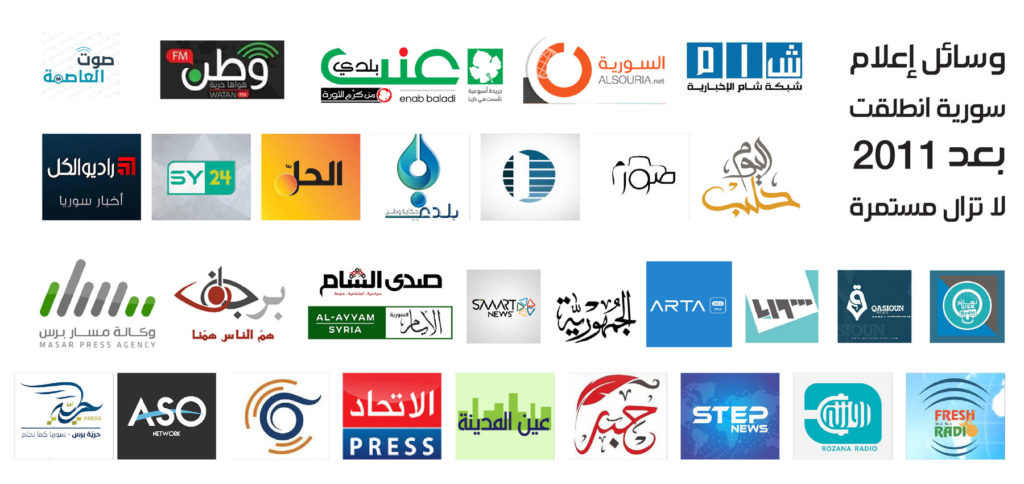
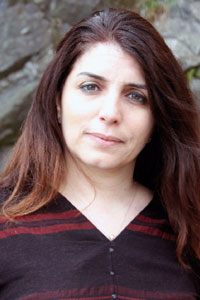
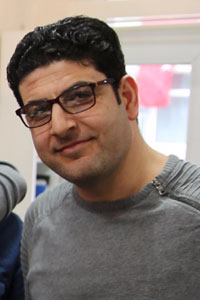
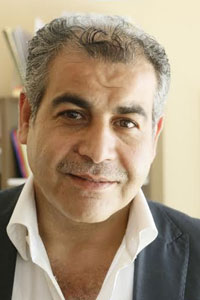
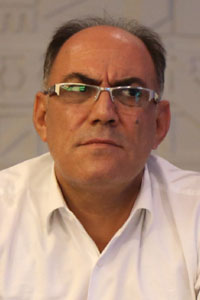
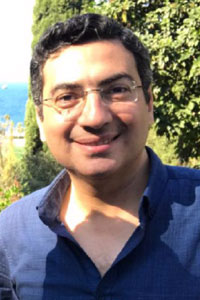
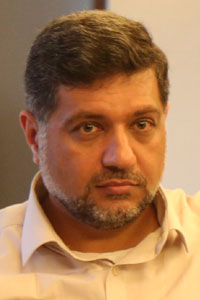
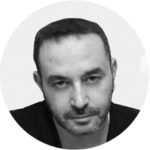


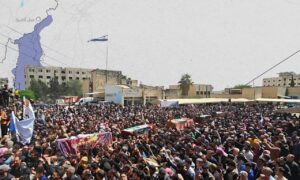




 More In-Depth
More In-Depth